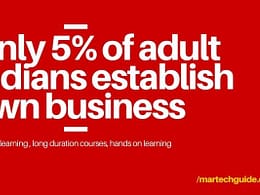How to find online jobs in India, which is never advertised
There are plenty of jobs online. That’s right — plenty. But they are not being advertised—they aren’t publicly announced. They are undercover. Lets understand How to find online jobs in India?
I’m going to help you learn how to find them or actually create them. But first, it’s important to understand why they are undercover in the first place.
- Companies want to avoid bad press – They do not want to advertise that they’re hiring when they are also letting people go. It hurts their credibility and creates very poor public relations. But the reality is that companies almost always continue to hire even during periods of downsizing.
- They want to minimize spending – Budgets have been slashed, and managers often have to go out on a limb to get someone hired. They don’t want to spend hundred or even thousands of dollars on ads or agency fees.
- Job requirements keep changing – It is difficult for hiring managers to define positions when the ground keeps moving beneath them. Therefore, they are often shy about describing a position in an advertisement when job requirements may be very different tomorrow.
- Another reason for not seeing some of the open jobs is that some of them are given to headhunting firms and NEVER advertise the job we work on. This is because they are approaching people that are not looking so that would be a waste of time and money.
Don’t Look for Jobs. Look for Needs.
Finding needs will get you hired because companies will create ways to bring in the people that can help them meet increased demand. If you can match your skills with a company’s needs, you stand an excellent chance of having a job created just for you—which is historically the way the best jobs happen anyway.
How do you find those needs so you can create a job that doesn’t exist? There are a few things you need to know to find jobs online:
- Know your targets or potential companies.
- Know if there are enough opportunities in each of your targets: aim for 200 positions in all of your targets combined! That means you will have to include the mid-sized firms that ‘you’ve never heard of’ and are more difficult to find.
- Know the issues that you can address and the problems you can solve. You must know the greatest needs of your target companies —as well as the needs of each company you contact. What are the most significant challenges? Do you know the relevant jargon, areas of anticipated decline and areas of expected growth?
- Know how to generate meetings in your targets with possible contacts and references.
- Follow up and turn those meetings into offers.
How to Get Lists of Companies and Identify Issues?
Through research you can identify industries and companies—including mid-sized companies to help you expand your search—and uncover the primary issues.
You can do the research fast, and with relatively little pain and inconvenience, using the Internet as your North Star and communicating with some niche good consulting companies.
However you decide to research, remember that you are looking for lists of companies, people and issues. If you forget your mission, you will get lost. And be guided by the following questions:
- How is the industry organized? Start with the big picture, looking at an entire industry. Then break it down into its components. What part of it are you interested in? For example, within Healthcare you might be interested in Pharmaceuticals, Biotech, Medical Devices, or Hospital Administration.
- What is the industry profile? Identify what’s going on in the industry or segment that you select. What are the key issues, buzzwords, areas of growth and decline, foreseeable threats and areas of opportunity? What are the industry associations? Associations can be unbelievable sources of information. Take a look at their journals, newsletters, membership lists, and conferences. Pay especial attention to conference topics, presenters, and sponsors.
- Do you have your company lists and key players identified? Create your lists and narrow your focus. Identify the main players in the industry (companies and people). You will begin to get an idea if there are enough opportunities for you to target. How many companies are there? See if you can figure out where people go when they leave the major companies—this will often help you identify the medium-sized players. Which ones are public and which ones are private?
- Do you know enough about potential opportunities? Dig deeper into the specific companies you have found in your target. What’s going on in each of them? Do they have a special niche or a unique reputation in the industry? What are their competitive position and/or their key differentiation?
- Do you know what job you would aim for? Now you can get more specific. What might your job title be in this industry and in the companies you have identified?
- Who would hire you? Find out the hiring manager’s title and name—or the names and titles of people who are one or two levels above you.
- What key problems would you be able to solve? Craft your positioning statement to offer evidence and proof of your expertise. The more people you speak with, the more of an insider you will become in your target industry.
Besides all have a great resume and elaborated cover letter and take the first bold step with confidence.
Finding a job online can be a convenient and efficient way to explore opportunities. Here are some steps to help you find a job online:
Identify your skills and interests: Determine the type of job you’re looking for, considering your skills, experience, and interests. This will help you narrow down your search and focus on relevant positions.
For Exp: You are looking for jobs in Digital Marketing, SEO, PPC
Then
Search for positions or job roles like;
- Digital Marketing Executive
- Digital Marketing Internship
- SEO Executive
Etc.…
Update your resume and online profiles: Ensure that your resume is up to date and tailored to the positions you’re interested in. Create or update your online profiles on professional networking platforms such as LinkedIn, highlighting your skills and experience.
How to make your resume: watch this useful video
Utilize online job search platforms: Numerous job search websites and platforms are available online. Some popular ones include Indeed, LinkedIn Jobs, Glassdoor, Monster, and CareerBuilder. Use these platforms to search for job openings based on keywords, location, industry, or specific companies.
Set up job alerts: Many job search platforms allow you to set up job alerts based on your preferences. You can receive email notifications or push notifications on your mobile device when new job listings matching your criteria are posted. This helps you stay updated and ensures you don’t miss any relevant opportunities.
Company websites and professional networks: Visit the websites of companies you’re interested in working for. Many organizations post job openings on their career pages. Additionally, leverage your online and offline professional network to learn about job openings or potential opportunities.
Online networking and industry-specific platforms: Engage in online networking through platforms like LinkedIn. Connect with professionals in your industry, join relevant groups and communities, and participate in discussions. These activities can help you expand your network and discover job opportunities through referrals.
Freelancing and remote work platforms: If you’re interested in freelance or remote work, explore Upwork and Freelancer platforms. These platforms connect freelancers with clients and remote work opportunities across various industries.
Be proactive: Don’t limit yourself to job postings. Take proactive steps by reaching out to companies directly, even if they don’t have current openings. Send a tailored cover letter and resume expressing your interest in working for them. This initiative may lead to future job opportunities or networking connections.
Prepare for online interviews: As you apply for jobs online, be prepared for virtual interviews. Familiarize yourself with common video conferencing platforms like Zoom or Microsoft Teams. Test your audio and video settings beforehand, dress professionally, and ensure you have a quiet and well-lit space for the interview.
Follow up and stay organized: After applying for jobs online or completing interviews, follow up with a thank-you email to express your appreciation and reiterate your interest in the position. Keep track of the jobs you’ve applied to and the status of each application to stay organized and follow up if needed.
Remember that finding a job can take time, so be persistent and continue to refine your search strategy. Good luck with your job search!












